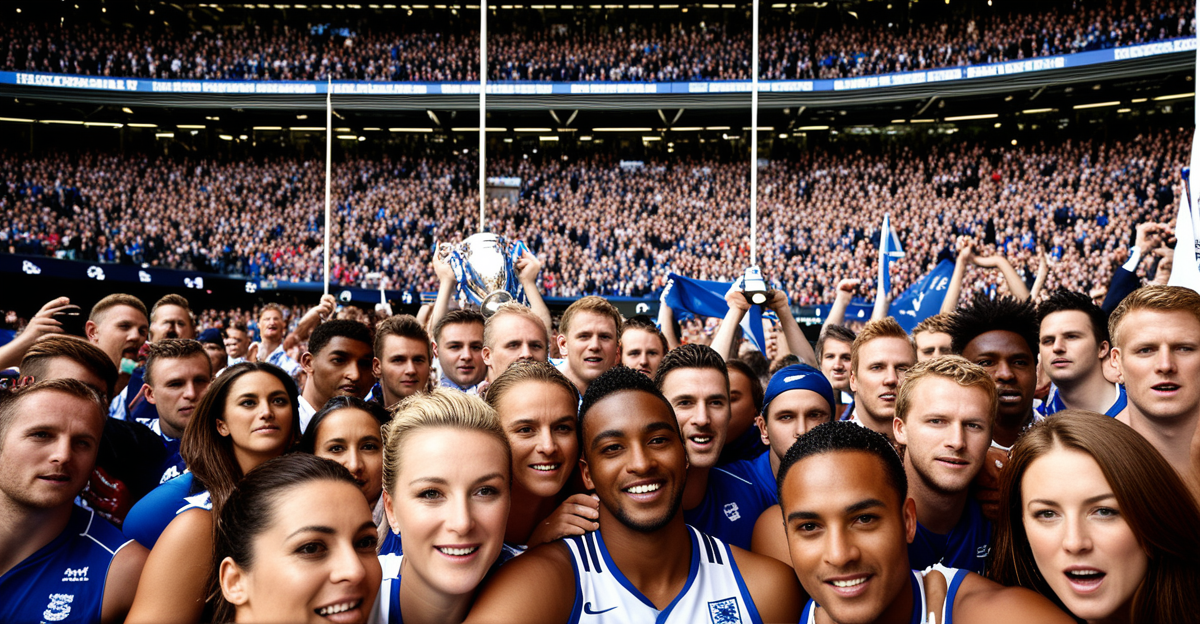Process of Selecting and Preparing UK Sports Teams
Selecting UK sports teams begins with a rigorous team selection process that assesses athletes based on performance data, consistency, and potential across disciplines. The criteria vary depending on the sport, but typically include recent competition results, physical fitness benchmarks, and tactical abilities. Beyond raw talent, athlete profiling plays a pivotal role by mapping strengths, weaknesses, and psychological readiness to assign optimal team roles. This profiling ensures each athlete’s skill set aligns with strategic goals.
Following selection, athletes enter training camps designed to foster team cohesion and establish baseline fitness. These camps focus on conditioning while exposing athletes to sport-specific situations, enabling coaches to evaluate real-time responses and fine-tune preparations. Training camps serve as a critical transition phase from individual capability to unified team performance, balancing physical demands with tactical drills.
Have you seen this : How do UK sports clubs manage fan engagement?
This process guarantees a comprehensive approach, marrying data-driven selection with holistic preparation. It lays a foundation not just for physical readiness but for strategic clarity, ensuring UK teams are both resilient and adaptable on the international stage.
Process of Selecting and Preparing UK Sports Teams
The team selection process hinges on objective criteria tailored for each sport, blending quantitative metrics with qualitative assessments. Coaches evaluate athletes through recent competition results, fitness levels, and technical prowess. Equally critical is athlete profiling, which maps individual capabilities, psychological resilience, and tactical fit. This detailed profiling enables precise role assignments, ensuring athletes contribute maximally to collective strategy.
This might interest you : What Strategies Should UK Athletes Implement to Enhance Performance?
Once selected, athletes enter training camps designed for intensive preparation. These camps combine physical conditioning with sport-specific drills, emphasizing real-time performance evaluation under controlled stressors. Trainers adjust programs based on feedback, optimizing athletes’ readiness while fostering team cohesion. Training camps also serve to bridge individual skill sets with tactical execution, preparing teams for competitive unity.
Collectively, these stages form a dynamic cycle. The interplay between team selection, athlete profiling, and training camps not only solidifies athlete readiness but also aligns physical and strategic objectives, creating adaptable UK sports teams equipped for international challenges.
Process of Selecting and Preparing UK Sports Teams
The team selection process adapts diverse criteria to suit each sport’s demands. Coaches combine measurable performance data with skill evaluations and psychological profiling to form a balanced, cohesive squad. Athlete profiling is fundamental, detailing capabilities such as technical proficiency, mental resilience, and tactical awareness. This profiling guides precise role assignments, ensuring every team member fits their position’s unique requirements.
Training camps represent the first intensive phase after selection. These camps focus on integrating individuals into a unified system, emphasizing both physical and tactical readiness. They provide controlled environments where athletes transition from isolated excellence to synchronized team execution. Coaches use real-time assessments within training camps to identify areas for improvement and adjust regimens accordingly.
Through continuous feedback during training camps, athlete profiling remains an evolving practice that refines development strategies. By aligning selected athletes’ attributes with roles and team tactics, the process maximizes each player’s contribution to collective objectives. This holistic approach ensures UK teams are not only physically prepared but strategically optimized for competitive success.
Process of Selecting and Preparing UK Sports Teams
Effective team selection starts with sport-specific criteria that blend quantitative results and qualitative insights. Coaches evaluate athletes’ recent performances, technical skills, and fitness benchmarks. Central to this process is thorough athlete profiling, which carefully assesses mental resilience, tactical understanding, and physical capabilities. This profiling is crucial for assigning precise roles that leverage each athlete’s strengths within the team framework.
Following selection, training camps play a vital role in transforming individual talent into cohesive team performance. These camps emphasize physical conditioning alongside tactical drills tailored to the sport. Real-time assessments during training camps help coaches identify areas needing refinement and adjust programs dynamically. Additionally, training camps nurture team chemistry, building trust and communication essential for success on the international stage.
The combined use of team selection, detailed athlete profiling, and intensive training camps ensures optimal alignment between athlete potential and strategic objectives. This methodical approach not only prepares athletes physically but also shapes a well-synchronized, adaptable team ready to meet the demands of competitive sport at the highest levels.
Process of Selecting and Preparing UK Sports Teams
The team selection process requires sport-specific criteria that blend objective data and expert judgment. Athletes are assessed on recent performance, technical skill, and tactical understanding. A core component is athlete profiling, which evaluates not only physical abilities but also psychological traits and adaptability. This profiling informs precise role assignments, ensuring team members’ strengths align with their responsibilities.
Once chosen, athletes enter training camps that focus on conditioning and skill integration. These camps provide structured environments for drills tailored to each sport, encouraging both individual and team development. Coaches monitor progress closely, refining training based on real-time feedback to optimise readiness.
The interplay between team selection, profiling, and training camps creates a comprehensive development cycle. This ensures athletes meet physical standards while fitting strategically into the team framework. By emphasizing data-driven decision-making and adaptive training, UK sports organisations build squads capable of performing cohesively under international pressures.








